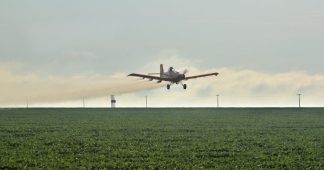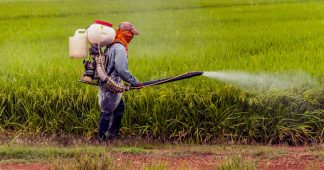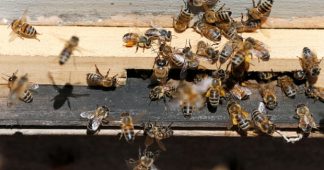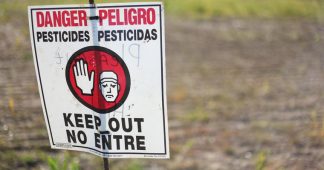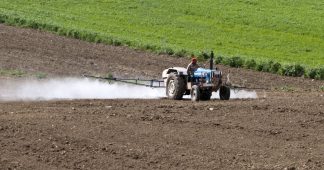By Susan Haffmans
Sep 27, 2019
Germany is a powerful player in global pesticide markets. Home to Bayer CropScience, this single European country is responsible for more than 10% of international pesticide trade.
Researchers here at Pesticide Action Network (PAN) Germany recently conducted an investigation to see whether the country is exporting highly hazardous pesticides (HHPs) that have already been banned in the European Union. The answer is yes.
Troubling results
We examined official export data provided by the German Federal Office of Consumer Protection and Food Safety, and compared them to the PAN International HHPs List and the European Union (EU) pesticide database. We asked the following questions: How many HHPs are exported from Germany? Do companies in Germany export pesticides whose use is prohibited in the EU for health or environmental reasons? How transparent is the German pesticide export business?
Earlier this week we published the results of our research in the report Giftige Exporte (Toxic Exports), with an English executive summary. We found that as of 2017 (the most recent data available), Germany:
- Exported 59,616 tons of pesticide ingredients (excluding inert gases). This exceeds total domestic use of pesticide ingredients by 1.7%.
- Exported 233 different pesticide active ingredients, of which 62 are HHPs (more than a quarter of all exports).
- Exported nine pesticides which are not approved for use in the EU, including the pesticides cyanamide, acetochlor, and tepraloxydim, which are listed by the EU as carcinogenic and toxic to reproduction.
A global problem
The pesticide industry, one of the largest business sectors in the world, is booming. At the same time, each year millions of people worldwide suffer acute pesticide poisoning and chronic health harms linked to exposure.
HHPs are an especially serious threat to the well-being of the environment and the health of people all over the world. Case in point? A report of more than 2000 interviews conducted in seven Asian countries, released recently by our partners from PAN Asia and Pacific, showed that 70% of small-scale farmers and agricultural workers suffer from symptoms of acute poisoning. Similar figures are reported in Latin America.
It is shocking that European and German law permits the export of pesticides that are banned in the EU. We also know these banned pesticides are often exported to countries in the Global South, where regulation of pesticides can be weak, and people may spray them without having access to personal protective equipment.
Together with our global PAN partners, we are fighting for the elimination of this double standard. We are pushing for binding international pesticide regulations and the phaseout of HHPs. We support the replacement of these chemicals — around the world — with agroecology .
* Susan Haffmans is a Senior Advisor for PAN Germany, based in Hamburg. She coordinates the annual update and release of the PAN International list of Highly Hazardous Pesticides, as well as the consolidated list of banned pesticides.
Published at www.panna.org
We remind our readers that publication of articles on our site does not mean that we agree with what is written. Our policy is to publish anything which we consider of interest, so as to assist our readers in forming their opinions. Sometimes we even publish articles with which we totally disagree, since we believe it is important for our readers to be informed on as wide a spectrum of views as possible.
